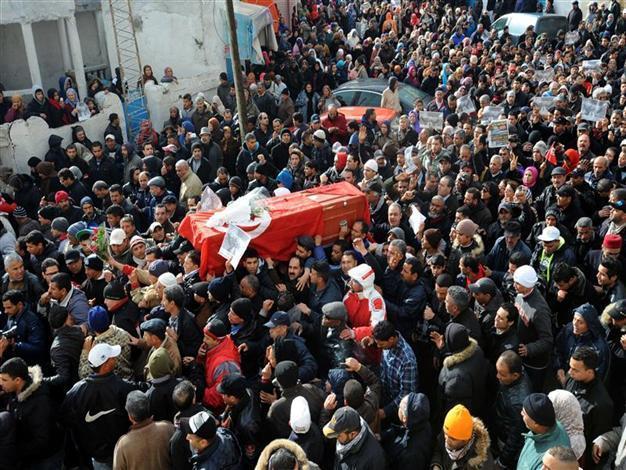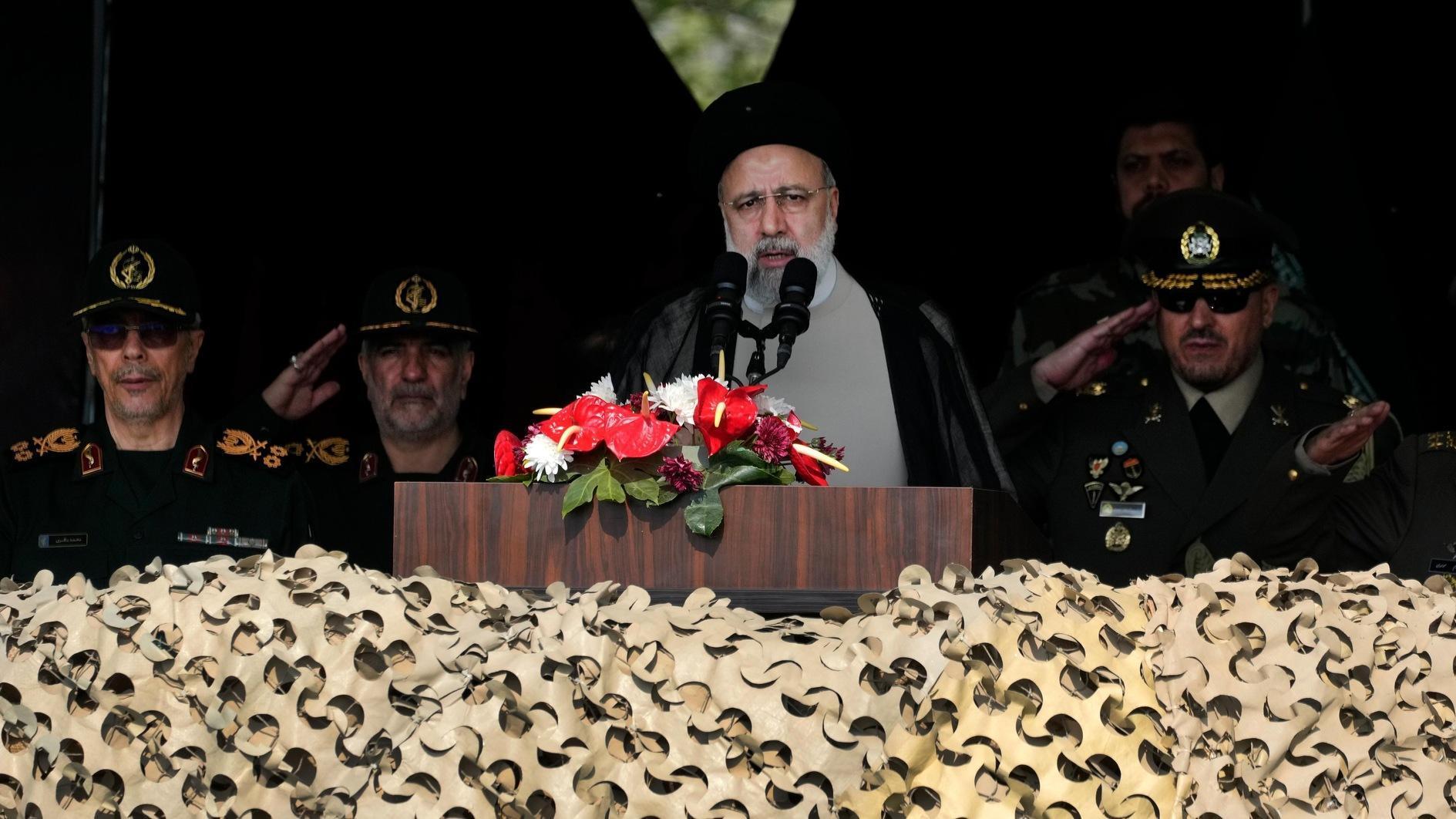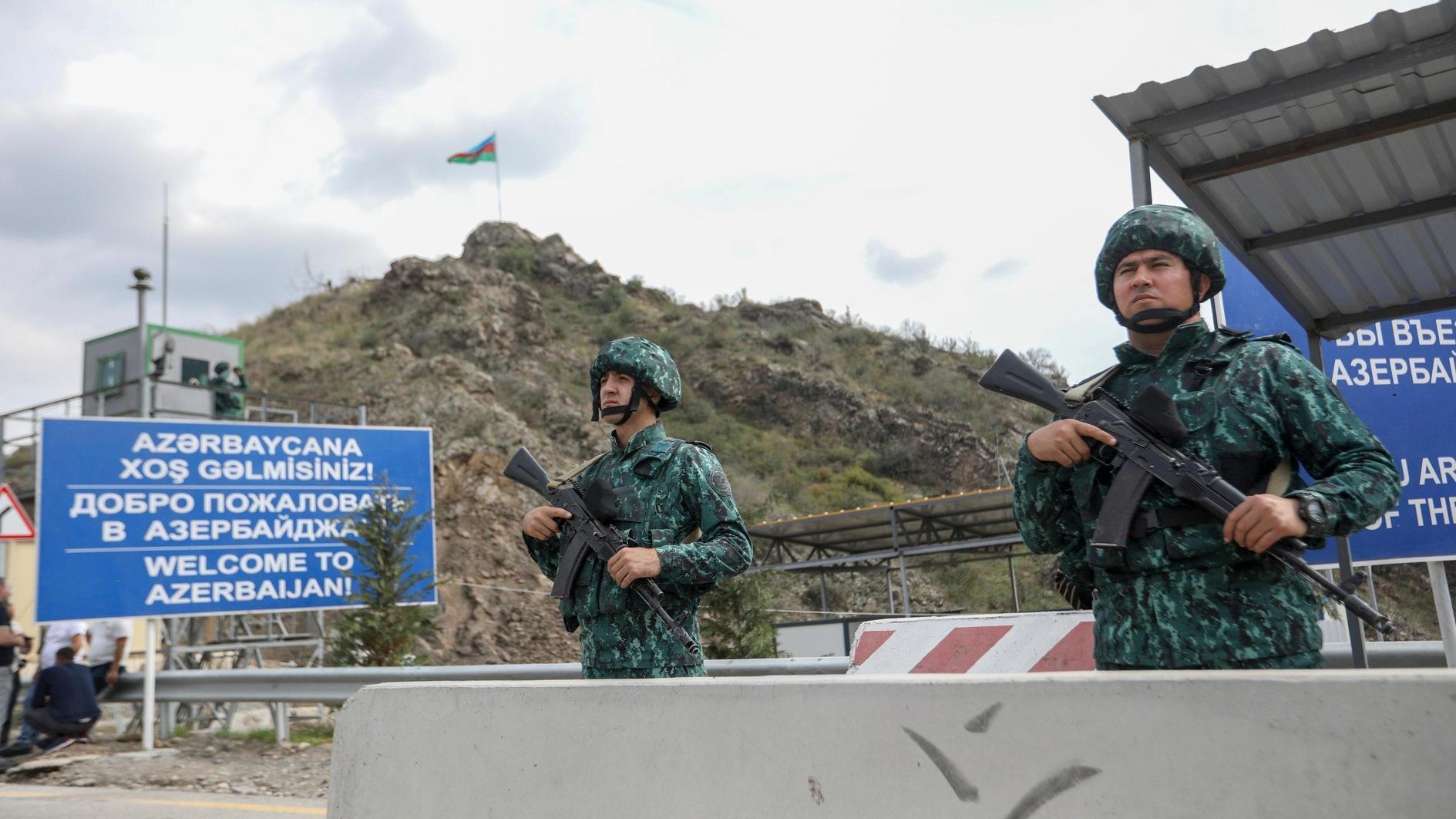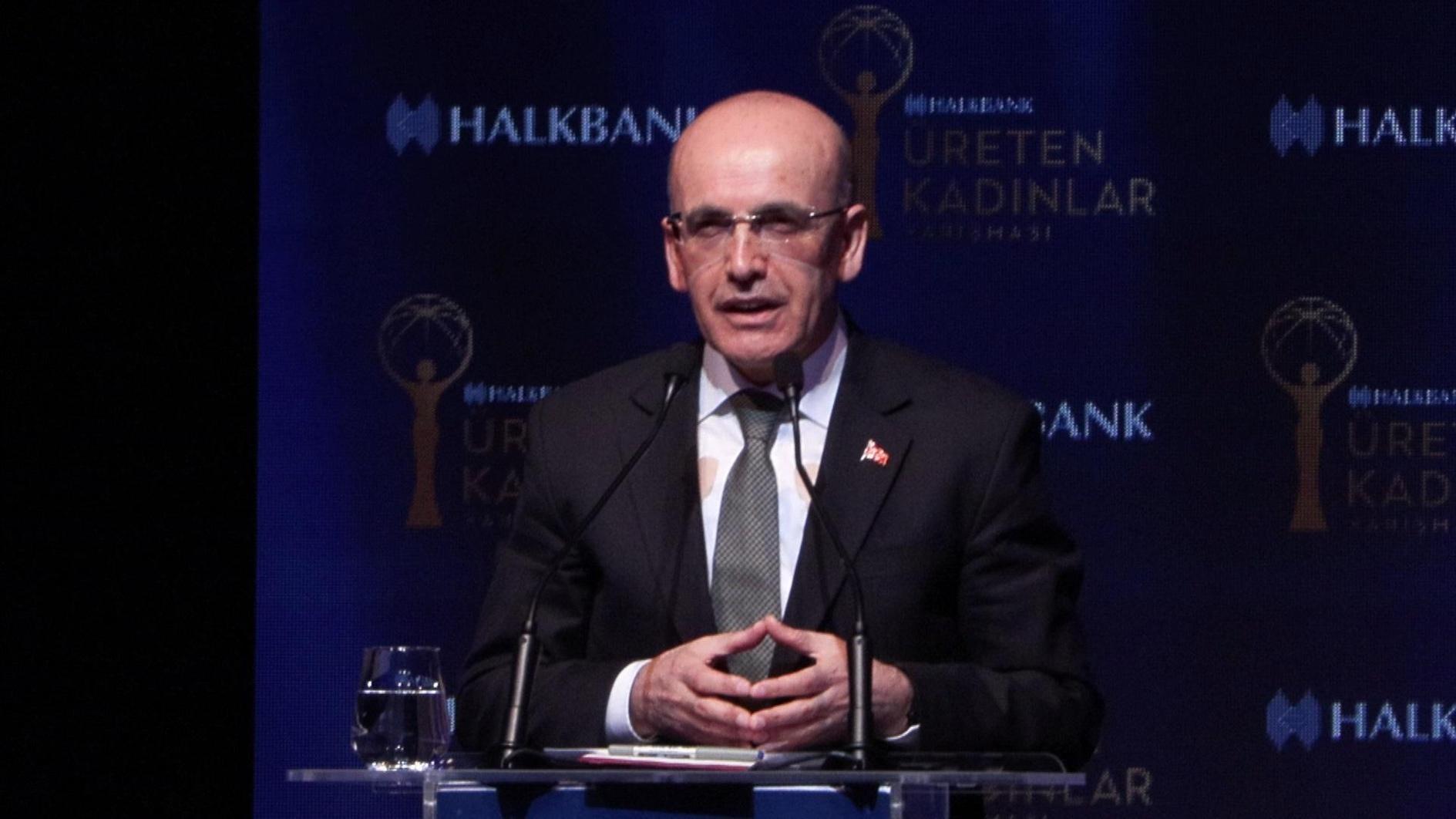Clashes as tens of thousands mourn Tunisia politician
TUNIS - Agence France-Presse

People carry the coffin of late opposition leader Chokri Belaid during his funeral procession which makes its way to the nearby cemetery of El-Jellaz where Belaid is to be buried on February 8, 2013 in the Djebel Jelloud district, a suburb of Tunis. AFP PHOTO / FETHI BELAID
Tunsia's assassinated opposition leader Chokri Belaid was buried on Friday at around 1500 GMT at a cemetery in southern Tunis, an AFP journalist reported.As Belaid's body was lowered into the ground, thousands of people cried "Allahu akbar!" (God is greatest) before singing the national anthem and reciting the opening verse of the Koran.
Tunisia in crisis since Chokri's assassination
Tunisian police fired tear gas and clashed with protesters on Friday as tens of thousands joined the funeral of opposition leader Chokri Belaid whose murder plunged the country into new post-revolt turmoil.
The skirmishes erupted on the margins of the funeral procession which turned into a demonstration in Tunis, a city paralysed by a general strike called in protest at Wednesday's assassination of the leftist leader.
"With our blood and our souls we will sacrifice ourselves for the martyr," shouted mourners, who also chanted slogans denouncing the ruling Ennahda party as "assassins".
Among the demonstrators were prominent politicians and Belaid's widow Besma, who held two fingers in the air in a victory sign as a chant of "The people want a new revolution" rang out.
It was all too much for his eight-year-old daughter, who fainted amid the chaotic and emotional scenes as the procession set off on its three and a half kilometre journey to the cemetery.
"My son is a man who lived with courage and dignity. He was never afraid, he left as a martyr for our country," said Salah Belaid, his father.
"We lost a great hero," Beji Caid Essebsi, a former prime minister who is now a centre-right opposition leader, told AFP.
The opposition has accused Ennahda, the Islamist party that dominates the ruling coalition, of eliminating the outspoken government critic after months of simmering tensions between liberals and Islamists over the future direction of the once proudly secular Muslim nation.
Police fired tear gas to disperse groups of rioters who tried to set fire to a dozen cars opposite the cemetery in southern Tunis, sending up thick plumes of smoke and causing some panic.
In the city centre, police wielding batons and firing tear gas clashed with dozens of youths who chanted anti-government slogans on Habib Bourguiba Avenue.
Armoured vehicles and troops had taken up positions along the landmark boulevard, epicentre of the 2011 revolution that toppled autocratic president Zine El Abidine Ben Ali and sparked a wave of Arab world uprisings.
Belaid, 48, was shot dead at close range by a lone, hooded gunman as he left home for work on Wednesday.
As a general strike called by the powerful General Union of Tunisian Workers (UGTT) took hold, troops were deployed in the towns of Zarzis, another flashpoint in the south and Sidi Bouzid, birthplace of the 2011 uprising.
Police fired tear gas to disperse a demonstration in the central mining town of Gafsa, the scene of sporadic rioting in the aftermath of Belaid's killing, where protesters set alight a police station on Friday.
The strike is believed to be the biggest since January 14, 2011 -- the day Ben Ali fled to Saudi Arabia, where he remains in exile.
"For us it is a landmark event because it is a real turning in the history of Tunisia," said Habib Kazdaghli, the dean of Manouba University, explaining why academics had joined the strike.
The United States joined both the 500,000-strong UGTT and the Tunisian government in appealing for calm after two days of violence left one police officer dead, another in a coma and scores injured.
Prime Minister Hamadi Jebali responded to the outrage by saying he would form a government of technocrats, but a faction of his Ennahda party has rejected the move, fuelling uncertainty in a country where political infighting has delayed agreement on a new constitution.
Any reshuffle would have to be confirmed by the national assembly.
Four opposition groups including Belaid's Popular Front bloc said they were pulling out of the National Constituent Assembly, elected in October 2011 but which has failed to draft a new constitution.
The Tunisian League for Defence of Human Rights said threats and intimidation were continuing under the Ennahda-dominated government, and called for politicians to be protected.
Pro-Ennahda militias have been accused of organising attacks on secular opposition groups already at loggerheads with the party over the constitution.
Ennahda has vehemently denied charges by Belaid's family that it was behind his killing.
















